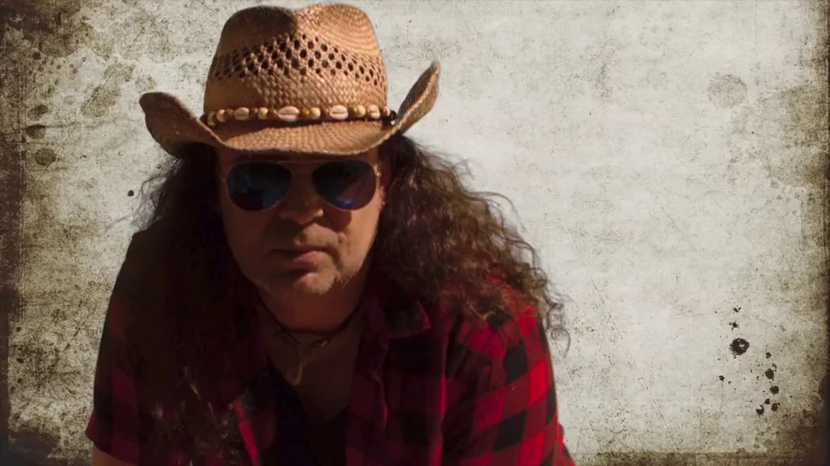As we shared with you last year, Inter Relocation’s owner was once an aspiring musician; so when new Budapest-based band Tuesday Night Rodeo, contacted him to talk about corporate sponsorship, they received a friendly reception. Inter Relocation has taken the decision to continue this fruitful cooperation throughout 2017.
We talked to lead singer Terry Etheridge and Inter Relocation’s owner, Stuart McAlister about their cooperation, music and how Tuesday Night Rodeo has moved on since the last time we spoke to them.

Although Tuesday Night Rodeo was formed just last year, you’ve already achieved great success. Could you summarize the major milestones thus far?
Terry: Every new band wishes and hopes for airplay and a label deal, Tuesday Night Rodeo managed to secure a label deal and release within the first year, soon after RadioRock in Hungary gave us our first airplay, and to achieve daily rotation was a big wow for us!
Stuart, was it even a question for Inter Relocation to continue sponsoring the band?
Stuart: Honestly, yes. Our Corporate Social Responsibility (CSR) policy involves different elements and whenever we support a cultural project there must be real value in the support we give. Tuesday Night Rodeo is a great example of cross-cultural cooperation, a group of Hungarian musicians with a Brit on lead vocals and guitar, playing ostensibly American music. This is what attracted us to the project, a truly international blend of nationalities and musical backgrounds, coming together in Hungary to play yet another style of music.
You have musical background, mostly pop and funk. Why a country-rock band?
Stuart: I’ve known Terry as well as Joey from Paddy and the Rats for several years and when I heard about this new musical direction that they were taking together, I was very excited. Country rock isn’t a genre that has featured much in my life but artists like Sting have dabbled with country music and knowing Terry the way I do, I knew that the songs they write will be a little different from what I might typically expect country rock to mean. I was not disappointed!
How exactly did this cooperation start? Sure there is a bit more insider information.
Stuart: Well, inevitably, it started in the Caledonia Pub. Terry and I had had a casual conversation about this new band project over a beer and then he contacted me formally to express that the band was looking for founder sponsors. We explored the cooperation together and it made sense for me both from a CSR and business perspective. I’ll hand over to Terry to give you his side of the story. :)
Terry: Indeed, it did all start over a beer, or was that two? I’d known Stuart for several years and also knew he was a fellow musician. When the idea of sponsorship came up Stuart/Inter-relocation were obvious potential partners. Stuart’s business has been built supporting the local community and newcomers to Hungary. We chatted about the possibilities and soon realised the mutual benefits. Tuesday Night Rodeo are very proud to work in partnership with Inter Relocation.
What has changed in the band’s life since we last spoke to you? Are there any new or unique directions TNR is taking?
Terry: Joey and I have already started writing the next Tuesday Night Rodeo album. There will be focus on writing more up tempo material. Joey also just had the good fortune to record the new Paddy & The Rats album with an American producer Cameron Webb, who has produced the likes of Sum41 and Motorhead. We are already applying some of the guitar recording techniques Joey learnt to the demos for the new artist that Joey and I are managing and writing for, AGGI. So expect the new album to be a much bigger sound.
What is the biggest success in the band’s life to date?
Terry: Obviously such a fast album release, but now we are gaining airplay abroad too. The Album has been picked up by several country radio stations in the States and in the UK.
Your YouTube channel is pretty successful. There are comments like “I’m really digging this!”, “Very unique sound and vocal style!” and “I’m impressed!” What makes the band unique?
Terry: The band members all come from very different musical backgrounds, we didn’t take a look at the ‘Rule book for writing Country songs’. We wrote what we felt would make a new fresh approach to country, and then hung on to our hats. Being from London and living here in Budapest it seems that we can re-write the rule book, It’s almost expected. I’m not sure that would be the same for an American band.
Who are the current members of the band?
Terry: Myself, Joey & Sam from Paddy and the Rats, Stephen and our newest addition is bass-man Danny Cser who joined us just in time for the Inter Relocation birthday party back in March.
Summer is a big outdoor concert season. Where will we have the chance to see TNR?
Terry: We are still working on dates at the moment…. You will be the first to know
What’s the next big step for the band?
Terry: The next album. We plan to add songs from that in to the set early to make our live performance more “up”. There are also plans for a new video release, but again, it’s still in the planning stage.


